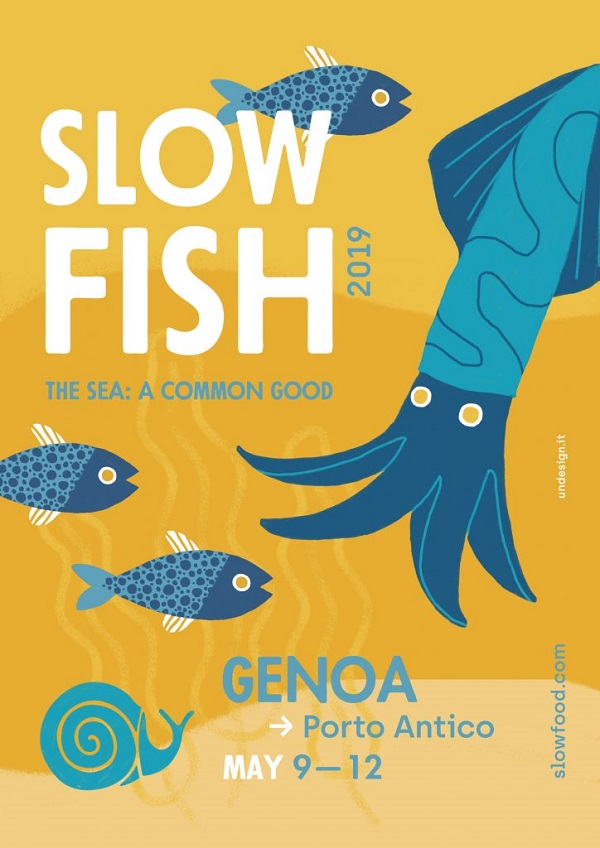First published on 03/29/2019, and last updated on 03/30/2019
From May 9 -12, “Slow Fish- the sea: a common good” will take place in Genoa, Italy, .
Slow food explains in its website the reasons for this theme:
If you think about it, the sea gives us a lot.
It’s a source of food and natural resources, energy and oxygen, of beauty, a means of transport, a carbon sink, as well as providing work and well-being to millions of people. It guarantees the survival of the human race on this planet, which we call the Planet Earth, yet could just as easily be called the Planet Sea.
It’s a source of food and natural resources, energy and oxygen, of beauty, a means of transport, a carbon sink, as well as providing work and well-being to millions of people. It guarantees the survival of the human race on this planet, which we call the Planet Earth, yet could just as easily be called the Planet Sea.
Marine ecosystems and human society are intimately connected. Even when we’re not eating fish, the chances are we’re somehow benefiting from one of the sea’s many gifts. Yet often, in exchange for the tangible and intangible goods that the sea gives us, we give nothing in return.
We’ve known for decades about our irresponsible behavior with regards to the sea. Human activity is causing climate change; the oceans are polluted with plastic, microplastics and numerous chemical substances. Our insatiable appetite to produce and possess has led to the destruction of natural habitats and coastal regions. We’ve fished more than we can afford to, putting many species at grave risk, and driving some to extinction. Things could get exponentially worse.
But we can still change course. Indeed, we have to. Because the sea is a common good. Not just for the three billion people who depend directly on the sea for their sustenance, but for everyone. The sea is a complex and delicate system that depends on our collective responsibility, precisely because it belongs to all of us equally. Now more than ever, that responsible management of the seas will be a determining factor in guaranteeing a sustainable future to the next generations.
It’s up to us now to change our buying habits, develop sustainable technologies, create more protected areas, improve our waste management, promote recycling, and reduce our greenhouse gas emissions.
Many of our objectives, both short and long-term—for 2020, 2030 and 2050—have been summarized by the UN in their Sustainable Development Goals, specifically Goal 14: Life Below Water.
At Slow Fish, as we’ve been doing for years, we work to educate consumers, starting with the younger generations, bringing together a diverse community of fishers, scientists, cooks and organizations that show us how we can all play a role in creating a better future.
Individual actions may be drops in the ocean, but by acting together we can have a decisive impact on our future.
